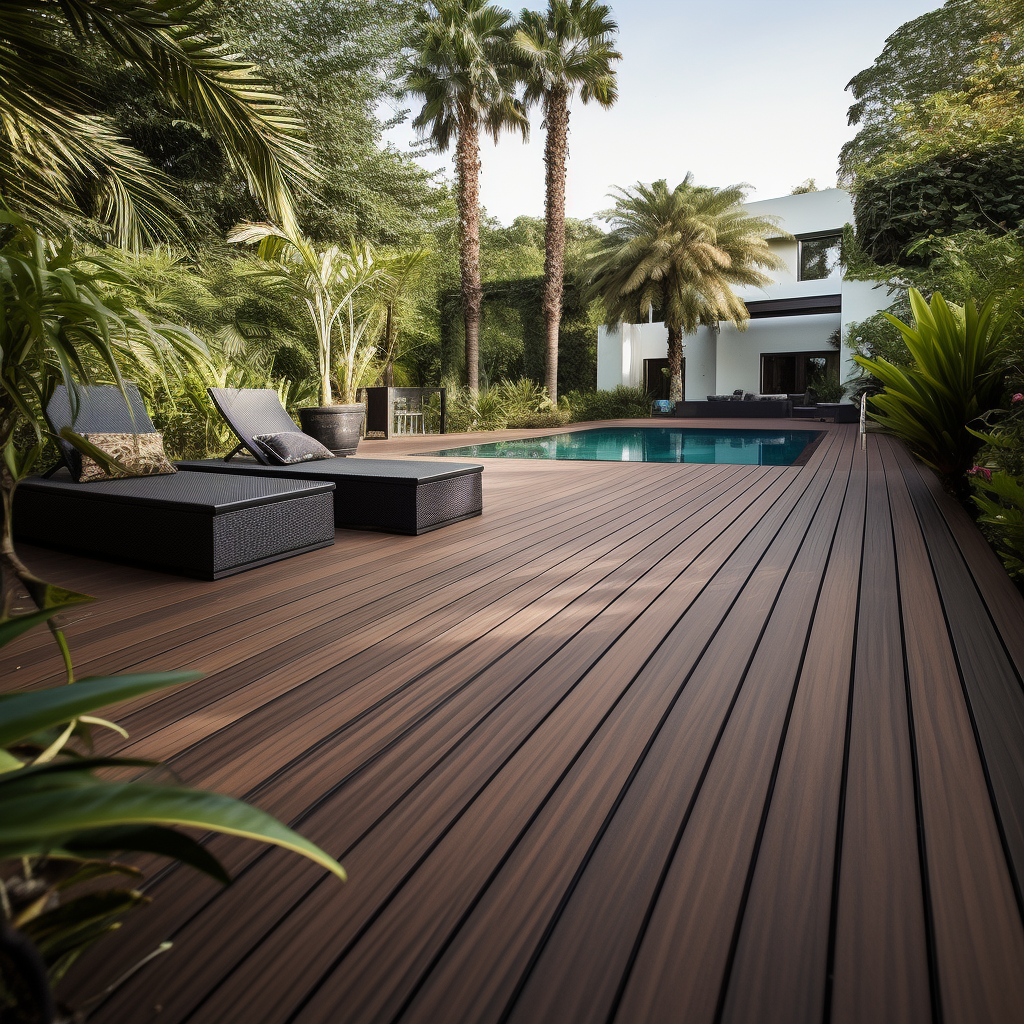



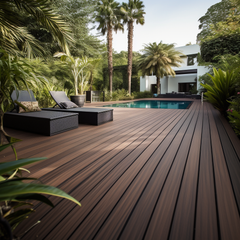
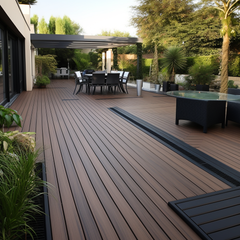
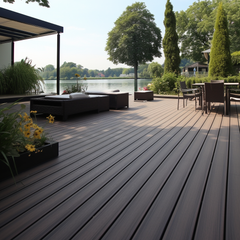
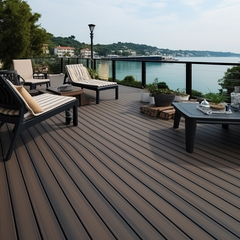
Balcony Wood Plastic Composite Outdoor Decking Pool Deck Flooring Swimming Pool Composite Decking Board Tiles Interlocking Flooring
Couldn't load pickup availability
Description
xProduct Data Sheet
| Product Name |
WPC Decking |
| Material | Wood Plastic Composite |
| Type | 3D Embossing Decking |
| Technics | Embossed, Fine grooves |
| Colors |
Antique, Light Gray, Silver Gray, Teak, Redwood or Customized |
| Size | 137mm*22.5mm or Customized |
| Surface Treatment |
Flat, Brushed, Wood Grain, Sanded, Deeper Grains or Customized |
| Function | Waterproof, Fire Retardant, Rotproof, Slip Resistant, UV Resistant, Insect |
| Application | Garden, Lawn, Balcony, Hallway, Garage, Swimming Pool, Boardwalk, etc. |
Design and colors





About Us


Exploring the Distinctive Features of WPC Decking
Wood-Plastic Composite (WPC) Decking has gained immense popularity in the construction industry, and for good reason. Its unique blend of materials results in a product that boasts a myriad of features, combining the best of both worlds. In this article, we take a closer look at the distinctive characteristics that set WPC Decking apart.
1. Composite Composition: WPC Decking is crafted from a blend of wood fibers and recycled plastic, creating a composite material that marries the natural beauty of wood with the durability of plastic. This composition ensures a product that is both aesthetically pleasing and resilient.
2. Aesthetic Appeal: One of the standout features of WPC Decking is its ability to mimic the look and feel of real wood. With a range of colors and textures available, homeowners can achieve the classic warmth of wood without compromising on the longevity and maintenance requirements of their outdoor decking.
3. Moisture Resistance: Unlike traditional wood decking, WPC Decking is inherently resistant to moisture. This characteristic makes it an ideal choice for areas exposed to rain or humidity, as it prevents issues like swelling, warping, or decay that commonly affect natural wood in such conditions.
4. Thermal Stability: WPC Decking exhibits impressive thermal stability, with minimal expansion or contraction in response to temperature changes. This feature ensures the decking remains dimensionally stable, reducing the likelihood of cracks or deformities over time.
5. Eco-Friendly Profile: The use of recycled materials in WPC Decking contributes to its eco-friendly profile. By incorporating recycled plastics, the material minimizes the demand for virgin plastic and promotes sustainability in the construction industry.
6. Versatility in Design: WPC Decking provides a canvas for creative design possibilities. Its versatile nature allows for a variety of finishes, patterns, and colors, enabling homeowners to personalize their outdoor spaces according to their unique preferences and style.
7. Low Maintenance Requirements: Gone are the days of labor-intensive maintenance. WPC Decking requires minimal upkeep, eliminating the need for regular staining or sealing. A simple cleaning routine is sufficient to keep the decking looking pristine, saving time and effort for homeowners.
8. Resistance to Insects and Decay: Insect infestations and decay are common challenges faced by traditional wood decking. WPC Decking, however, is inherently resistant to pests and decay, ensuring a longer lifespan and reducing the need for chemical treatments.
9. Weight Distribution: WPC Decking maintains a balanced weight distribution, making it suitable for various applications, including elevated decks or rooftop installations. Its lightweight nature simplifies the installation process and expands the possibilities for creative outdoor designs.
In conclusion, the features of WPC Decking make it a standout choice for those seeking a durable, visually appealing, and environmentally conscious solution for their outdoor spaces. Its composite composition, aesthetic versatility, moisture resistance, thermal stability, eco-friendly profile, design adaptability, low maintenance requirements, insect resistance, and balanced weight distribution collectively position WPC Decking as a cutting-edge material in contemporary construction and design.
Related Products
Recently Viewed Products

- Choosing a selection results in a full page refresh.
